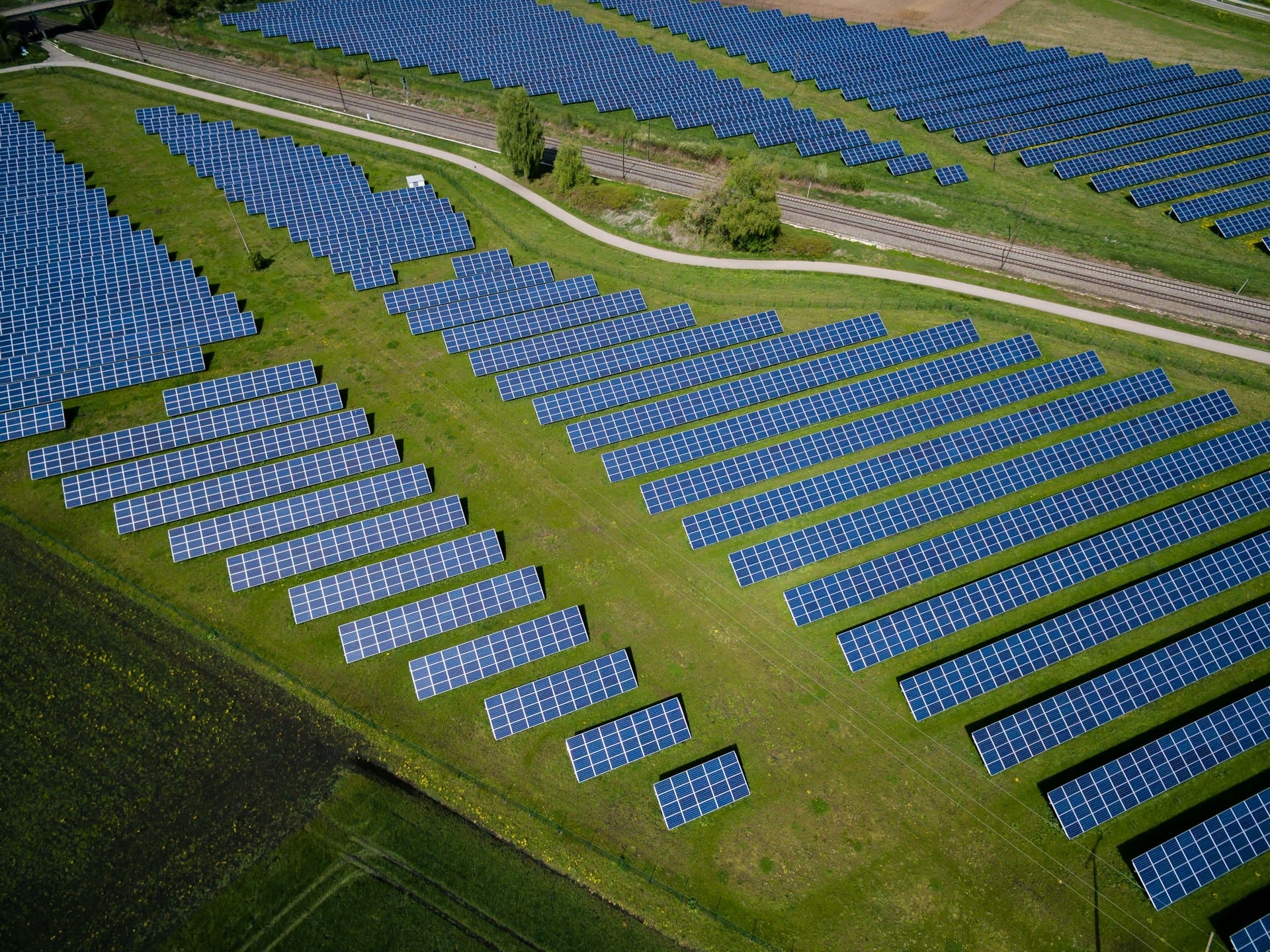Ensuring Resilience for Solar Energy Growth
The world is moving faster toward renewable energy and solar power is important for cutting carbon emissions and creating a sustainable future. The UK for example had a cumulative installed solar capacity of 15.6 GW by the end of 2023, and plans to reach 70 GW by 2035. However, ensuring a resilient and sustainable solar supply chain requires effective Environmental, Social, and Governance (ESG) risk management.
A resilient solar supply chain not only safeguards the environment but also promotes social responsibility, ethical governance, and operational continuity. In this article we explore ESG risk management strategies to help companies manage their solar energy supply chains.

1.Environmental Responsibility: Reducing Carbon Footprint and Waste
While solar energy generation is cleaner than fossil fuels, the environmental impact of panel manufacturing and disposal needs to be addressed. Currently the UKs Solar capacity carbon footprint is relatively low estimated as 20-50 grams of CO2 per kWh. It is predicted that by 2050 the UK could generate up to 800,000 tonnes of solar panel waste. This highlights the need for a robust recycling infrastructure.
Key Strategies:
- Lifecycle Assessments (LCA): Conduct LCAs to evaluate the total environmental impact of solar panel production. This includes raw material extraction, energy consumption during manufacturing, and end of life disposal or recycling. This analysis helps identify areas to reduce carbon emissions and minimise waste.
- Sustainable Sourcing and Recycling: Adopt circular economy principles and responsibly source materials such as silicon, cadmium, and rare earth elements. This includes verifying that suppliers adhere to environmental standards and promoting the use of recycled or more sustainable alternatives. The UK continues to enforce the EU’s WEEE Directive, requiring solar panel recycling.
- Energy Efficient Production: Partner with manufacturers that prioritise renewable energy use in their production processes. This will help reduce the overall carbon footprint of solar panel production.
2. Social Impact: Human Rights and Labour Standards
The solar industry’s rapid expansion has raised concerns about human rights violations and poor labour practices. For example, around 45% of the world’s polysilicon originates from China’s Xinjiang region. This is an area where forced labour practices have been reported. This is a key material for solar panels.
Upholding strong social governance is vital to preventing reputational damage and ensuring supply chain transparency. There are also legislative needs to ensure governance. In the UK, the Modern Slavery Act mandates that companies report on their actions to prevent slavery in their supply chains.
Key Strategies:
- Supplier Audits and Certifications: Regularly audit suppliers to make sure they follow international labour laws. This includes the standards set by the International Labour Organization (ILO). Look for certifications such as the Responsible Business Alliance (RBA) or Solar Stewardship Initiative to validate supplier practices.
- Worker Well-Being Programs: Collaborate with suppliers to implement worker safety and well-being programs that provide fair wages, safe working conditions, and health benefits. This helps avoid exploitation, child labour, and unsafe labour conditions often associated with rapid industrial growth.
- Engage Local Communities: Involve local communities in decision-making processes to ensure that solar installations contribute positively to local economies. This might include offering employment opportunities, skills training, or infrastructure investments to promote long-term benefits.
3. Governance in Solar Energy: Enhancing Transparency and Accountability
Good governance is fundamental to managing ESG risks in the solar supply chain. Strong governance practices help prevent fraud, corruption, and unethical behaviour. This ensures that stakeholders are aligned with sustainability goals.
In 2021 FCA introduced ESG related disclosure requirements. They demanded that all listed companies report on climate risks under the Climate-related Financial Disclosure. The TCFD framework is now incorporated into the International Financial Reporting Standards (IFRS). This helps companies provide consistent information to investors about their climate risks and opportunities.
Key Strategies:
- Robust Supplier Due Diligence: Implement strict due diligence processes to assess the ESG performance of suppliers before onboarding. Use tools like Achilles Supply Chain Due Diligence solution and MyAchilles Platform to streamline compliance and reduce the risk of unethical practices entering the supply chain.
- ESG Reporting and Disclosure: At the end of 2022 global ESG investment assets surpassed $30 trillion and are suspected to surpass $40 trillion but 2030. Aligning to global ESG reporting frameworks, such as the Global Reporting Initiative (GRI) or TCFD will improve ESG reporting and enhance investor confidence.
4. Risk Mitigation: Building Resilience Against Disruptions
Solar supply chains, like all global supply chains, can face disruptions. These disruptions can come from geopolitical tensions, climate change, or economic instability. Companies must integrate risk mitigation strategies into their ESG frameworks to ensure long-term operational resilience.
Key Strategies:
- Diversification of Suppliers: Avoid reliance on suppliers in a single region, particularly in high-risk areas prone to political instability or extreme weather events. Diversifying suppliers across multiple regions reduces the risk of supply shortages or disruptions.
- Scenario Planning and Stress Testing: Perform scenario planning to model potential disruptions, from natural disasters to trade restrictions. This allows businesses to develop contingency plans that can minimise downtime and supply shortages in worst-case scenarios.
- Collaborative Risk Management: Foster collaboration across the supply chain by sharing risk assessments and developing collective strategies to address emerging ESG risks. Encourage suppliers, logistics providers, and other stakeholders to work together to bolster supply chain resilience.
Solar Power: An opportunity to address climate change and improve sustainability
The growth of the solar energy sector presents a unique opportunity to address pressing global challenges related to climate change and sustainability. However, this expansion comes with a responsibility to manage the ESG risks inherent in the supply chain. By implementing robust risk management strategies, companies can build a solar supply chain that is resilient, ethical and sustainable.
Adopting best practices in environmental stewardship, social responsibility, and governance will safeguard companies from ESG-related risks and enhance their reputation and market competitiveness. As stakeholders demand greater transparency and sustainability, companies that invest in ESG risk management will be better positioned to lead in the adoption of solar.


